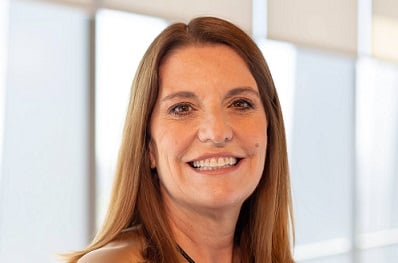Having spent 25 years in the rare disease arena, Maria Gabriella Pittis now finds herself at the forefront of a different field, spearheading the launch of Takeda’s dengue vaccine across Latin America.
Pittis, an Argentinian native, is a previous employee of the Argentinian National Scientific and Technical Research Council (CONICET), the Argentinian National Academy of Medicine and worked at the Hospital Garrahan, the largest paediatric hospital in Argentina, where she obtained a PhD in Molecular Biology. She then took on a postdoc position at the International Center of Genetic Engineering and Biotechnology (ICGEB) in Italy before moving on to the paediatric hospital in Trieste, helping build up its rare disease diagnosis centre which now stands as one of the most important diagnosis centres in Italy.
Working with patients in this role stoked her passion for serving rare disease patients and led to a shift from clinical practice into industry, working first as a consultant with Actelion and Genzyme before taking on a full-time position within Shire Argentina’s medical affairs team. Shire was acquired by Takeda in 2019 and Pittis now oversees the entirety of LatAm bar Brazil for the combined company
While rare diseases continue to be an area of focus for Takeda, the company’s dengue fever vaccine – recently approved by the European Medicines Agency (EMA) – is her “top priority” today. Pittis expands that the vaccine “can be used both in people that have and have not previously been exposed to dengue” and describes it as “a momentous achievement for Takeda and will have a big impact on LatAm, which – along with Asia – is home to many of the endemic regions for dengue.”
In March 2023, Takeda’s dengue vaccine was approved by Brazilian regulator ANVISA, which CEO Christophe Weber called “a significant moment for global public health, Takeda and most importantly, the people of Brazil, who experience the burden of the second-highest incidence of dengue globally. In 2022, Brazil saw more than 1.4 million cases of dengue and more than 1,000 deaths according to the Ministry of Health.”
Given that national immunisation programs seldom see major changes, the launch of this vaccine and its potential impact stand out as a “once in a lifetime opportunity” for Pittis. “As Takeda, we have a unique opportunity to impact people’s – not just patients’ – lives and fight this challenging and devastating disease,” she proclaims. “On a personal level, having always been working in rare and highly specialised diseases, this also represents an opportunity to learn more about vaccines, a completely different area. This is a new challenge, a learning process, and opportunity to interact with different stakeholders.”
“Prioritisation will be key. Right now, the dengue vaccine is my top priority and I need to make sure that we are ready, have the correct capabilities and plans in place, and are interacting with the correct stakeholders, including public sector payers. For example, we need to collaborate not only with Ministries of Health but also with Ministries of Environment, which also carry out anti-dengue campaigns. This broader spectrum across which we can have an impact is truly fascinating.”
However, Pittis cautions against treating LatAm as a homogenous block and warns that that different countries will need different approaches. “In Argentina, for example, dengue is only present in certain areas and therefore a full national immunisation program would not be necessary,” she outlines. “However, in Brazil, Mexico and Colombia it is endemic across almost the entire country and a different strategy will be needed. Regardless, in all countries we will need to sit down with authorities, medical societies, NGOs, and various ministries to understand how to address dengue in a holistic way. It is not only about adding the vaccine to a national program but working collaboratively to make this a real success.”


